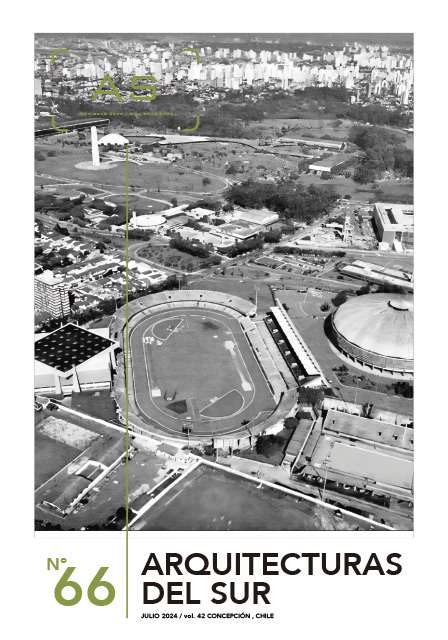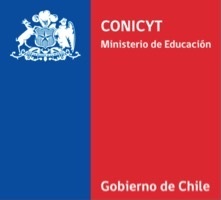Citizen participation as a driver of housing policies: The case of the occupation of the Cambridge Hotel
DOI:
https://doi.org/10.22320/07196466.2024.42.066.01Keywords:
citizen participation, occupation, social movements, social actors, housing financingAbstract
Faced with State inefficiency in housing provision, the occupation of the Cambridge Hotel, located on the outskirts of São Paulo’s city center, was used as a case study to identify possibilities in the struggle for social housing. The building, initially a hotel built in the 1950s, closed in 2002, was expropriated in 2011, and occupied by the Downtown Homeless Movement (Movimento Sem Teto do Centro) in 2012. The movement, after social tensions and participation in participatory councils, obtained the donation of the property and its license in a federal requalification program. Through qualitative analysis of the housing deficit in Brazil, characterized by the excessive burden of rents and the precariousness of real estate, in contrast to housing policies focused on the production of units through development programs in peripheral locations, it is understood that the analysis of the determining factors for the case study’s feasibility can contribute to the discussion of government policies and actions. The methodology, based on the procedural field, observational methods, and literature review in the logical field, was structured in dialectical and inductive methods for the research, systematization, and critical analysis of bibliographic and documentary references and, in empirical processes, in the qualitative analysis of semi-structured interviews and onsite visits. It was concluded that the power of dialogue and formation of the movement’s networks and its strategy, based on surrounding itself with actors that solidify its struggle, contributed to the viability of the Cambridge Hotel as a residential property. Based on the data analyzed, it is also argued that the participation of municipalities is undeniable in enabling the provision of housing in central areas. However, considering the hegemonic bias identified, the political action of social movements and the participation of academia in its instrumentalization are essential to strengthen the Capital-State relationship and enable the collation of territorial policies that the right to the city contemplates.
Downloads
References
AGIER, M. (2015). Do direito à cidade ao fazer-cidade. O antropólogo, a margem e o centro. Mana, 21(3), 483-498. https://www.scielo.br/j/mana/a/wJfG33S5nmwwjb344NF3s8s/?format=pdf&lang=Napt
Aurora Filmes (2016). Era o Hotel Cambridge. Filme longa-metragem. Direção Lili Caffé, São Paulo, SP.
BORGES, A., & MARQUES, L. (Orgs.) (2020) Coronavírus e as cidades no Brasil: reflexões durante a pandemia. Rio de Janeiro, RJ: Outras Letras.
BUONFIGLIO, L. V. (2008). Os sem-teto do centro da cidade. Desafios do Desenvolvimento, Instituto de Pesquisa Econômica Aplicada, IPEA, 5(46), 1. https://www.ipea.gov.br/desafios/index.php?option=com_content&view=article&id=1000:catid=28&Itemid=23
CALDAS, M. F. (2015). Política urbana, ação governamental e a utopia da reforma urbana no Brasil (Tese de Doutorado). Escola de Arquitetura, Universidade Federal de Minas Gerais, Belo Horizonte, MG. https://repositorio.ufmg.br/bitstream/1843/MMMD- A86J5X/1/tese_maria_caldas_vers_ofinal.pdf
Companhia de Habitação Popular do Estado de São Paulo (2015). Chamamento Público 02/15. http://cohab.sp.gov.br/Editais/docs/EDITAL__entidades_versao___09_10_15_Final.pdf
Constituição da República Federativa do Brasil. https://www.planalto.gov.br/ccivil_03/constituicao/constituicao.htm
ENGELS, F. ([1873] 2015). Sobre a questão da moradia. São Paulo, SP: Boitempo.
Escola da Cidade (2019). MSTC: moradia como prática de cidadania. https://escoladacidade.edu.br/galeria-da-cidade/mstc-moradia-como-pratica-de-cidadania/#:~:text=MSTC%20–%20Moradia%20como%20Prática%20de,na%20Cidade%20de%20São%20Paulo
Instituto Brasileiro de Geografia e Estatística (2023). População rural e urbana. IBGE Educa, IBGE. https://educa.ibge.gov.br/jovens/conheca-o-brasil/populacao/18313-populacao-rural-e-urbana.html
HARVEY, D. (2013). Os limites do capital. São Paulo, SP, Boitempo.
Fundação João Pinheiro. (2018). Déficit habitacional e inadequação de moradias no Brasil: indicadores sociais 2015. Belo Horizonte, MG, FJP. http://www.bibliotecadigital.mg.gov.br/consulta/consultaDetalheDocumento.php?iCodDocumento=76871
Fundação João Pinheiro. (2021). Déficit habitacional e inadequação de moradias no Brasil: principais resultados para o período de 2016 a 2019. Belo Horizonte, MG, FJP. https://drive.google.com/file/d/1MgenDRYIfH10aYirjRYIKwJGHwIxulGq/view
Lei n. 11.888, de 24 de dezembro de 2008. (2008). Assegura às famílias de baixa renda assistência técnica pública e gratuita para o projeto e a construção de habitação de interesse social e altera a Lei no 11.124, de 16 de junho de 2005. Brasília, DF. https://www.planalto.gov.br/ccivil_03/_ato2007-2010/2008/lei/l11888.htm
Lei n. 10.257, de 10 de julho de 2001. (2001). Regulamenta os arts. 182 e 183 da Constituição Federal, estabelece diretrizes gerais da política urbana e dá outras providências. https://www.planalto.gov.br/ccivil_03/leis/leis_2001/l10257.htm
LEFEBVRE, H. (2001). O direito à cidade. São Paulo, SP. Centauro.
MARX, K. (2011). O Capital. Crítica da economia política: o processo de produção do capital. Livro 1. São Paulo, SP, Boitempo.
Ministério da Fazenda. Secretaria Especial da Fazenda. Secretaria de Avaliação, Planejamento, Energia e Loteria (2020, dezembro). Relatório de avaliação do Programa Minha Casa Minha Vida. https://www.gov.br/cgu/pt-br/assuntos/noticias/2021/04/cgu-divulga-prestacao-de-contas-do-presidente-da-republica-de-2020/relatorio-de-avaliacao-pmcmv.pdf
MARICATO. E. (1996). Metrópole na periferia do capitalismo: ilegalidade, desigualdade e violência. São Paulo, SP: Hucitec.
MARICATO. E. (s.d.). Conhecer para resolver a cidade ilegal. Laboratório de Habitação e Assentamentos Humanos, Faculdade de Arquitetura e Urbanismo, Universidade de São Paulo, São Paulo, SP. https://labhab.fau.usp.br/2018/01/conhecer-para-resolver-a-cidade-ilegal/
MORAES, I. P. (2023). Residencial Cambridge: possibilidades na luta por habitação social (Dissertação de Mestrado). Programa de Pós-Graduação em Arquitetura e Urbanismo, Pontifícia Universidade Católica de Campinas, Campinas, SP.
MORAES, I. P., & LUZ, V. S. (2022, maio). Carmen Silva, líder do MSTC e a mídia: entre a criminalização dos movimentos sociais e a insurgência por moradias. Diálogo, 49, 01-08. https://www.revistas.unilasalle.edu.br/index.php/Dialogo/article/view/9436
MSTC, FLM. Movimento Sem Teto do Centro. (2014). https://mstc-flm.webnode.page/
MSTC, 13 ago. 2020. https://www.facebook.com/movimentosemtetodocentro/photos/pb.100069050783385.-2207520000./2831744037102259/?type=3&_rdc=1&_rdr
ROYER, L. O. (2009). Financeirização da política habitacional: limites e perspectivas (Tese de Doutorado). Faculdade de Arquitetura e Urbanismo, Universidade de São Paulo, São Paulo, SP. https://www.teses.usp.br/teses/disponiveis/16/16137/tde-19032010-114007/pt-br.php
RUFINO, M. B. C. (2015). Um olhar sobre a produção do PMCMV a partir de eixos analíticos. In Santo Amore, C., Shimbo, L. Z., & Rufino, M.B.C. (Orgs.). Minha Casa...e a Cidade? Avaliação do Programa Minha Casa Minha Vida em seis Estados Brasileiros (Cap. 3, pp. 51-70). Rio de Janeiro: Letra Capital.
SANTO AMORE, C., SAMPAIO, C., HIGUSHI, F., & PEREIRA, R. B. (2015, 24 de junho). Hotel Cambridge: por que não é possível construir HIS no centro de São Paulo?. Observa SP, Laboratório Espaço Público e Direito à Cidade, Faculdade de Arquitetura e Urbanismo, Universidade de São Paulo. https://observasp.wordpress.com/2015/06/24/hotel-cambridge-por-que-nao-e-possivel-construir-habitacao-de-interesse-social-no-centro-de-sao-paulo/
São Paulo (2022). Prefeitura assina 14 contratos com entidades para construção de 2.190 moradias pelo programa Pode Entrar. https://www.capital.sp.gov.br/noticia/prefeitura-assina-14-contratos-com-entidades-para-construcao-de-2190-unidades-habitacionais-pelo-programa-pode-entrar
Studio X Rio, Columbia GSAPP (Orgs.) (2019). As alternativas habitacionais dos movimentos sociais. 11ª Bienal de Arquitetura de São Paulo. https://edisciplinas.usp.br/pluginfile.php/5360599/mod_resource/content/1/2017%20Studio%20X_Lutar%20Ocupar%20Resistir.pdf
United Nations. United Nations Human Rights. Office of the High Commisioner ([1948] 2023). Declaração Universal dos Direitos Humanos. https://www.ohchr.org/en/human-rights/universal-declaration/translations/portuguese?LangID=por
World Population Review (2023). World city populations. https://worldpopulationreview.com/world-cities
YZQUIERDO, M. R. (2016) Residência é sinônimo de moradia. https://www.academia.edu/44164921/Resid%C3%AAncia_%C3%A9_Sin%C3%B4nimo_de_Moradia_Marta_Ramos_Yzquierdo
Published
How to Cite
Issue
Section
License
Copyright (c) 2024 Isidora Paiva-de-Morales, Vera Santa-Luz

This work is licensed under a Creative Commons Attribution-ShareAlike 4.0 International License.
The content of the articles published in each issue of Arquitecturas del Sur is the sole responsibility of the authors and does not necessarily represent the opinion of University of the Bío-Bío.
The authors will maintain their copyright; however, they will guarantee the journal the right to first publication and dissemination of their work. The publication of the article in Arquitecturas del Sur will be subject to the Creative Commons International license (CC BY-SA) that allows others to adapt: remix, transform and build on the material for any purpose, even commercially; share: copy and redistribute the material in any medium or format, as long as the authorship and first publication in this journal are acknowledged by citing them correctly, and their new contributions are under a license with the same terms.














 Programa de Información Científica/Concurso Fondos de Publicación de Revistas Científicas 2018/ Proyecto Mejoramiento de Visibilidad de Revistas UBB (Código:FP180007)
Programa de Información Científica/Concurso Fondos de Publicación de Revistas Científicas 2018/ Proyecto Mejoramiento de Visibilidad de Revistas UBB (Código:FP180007) 
